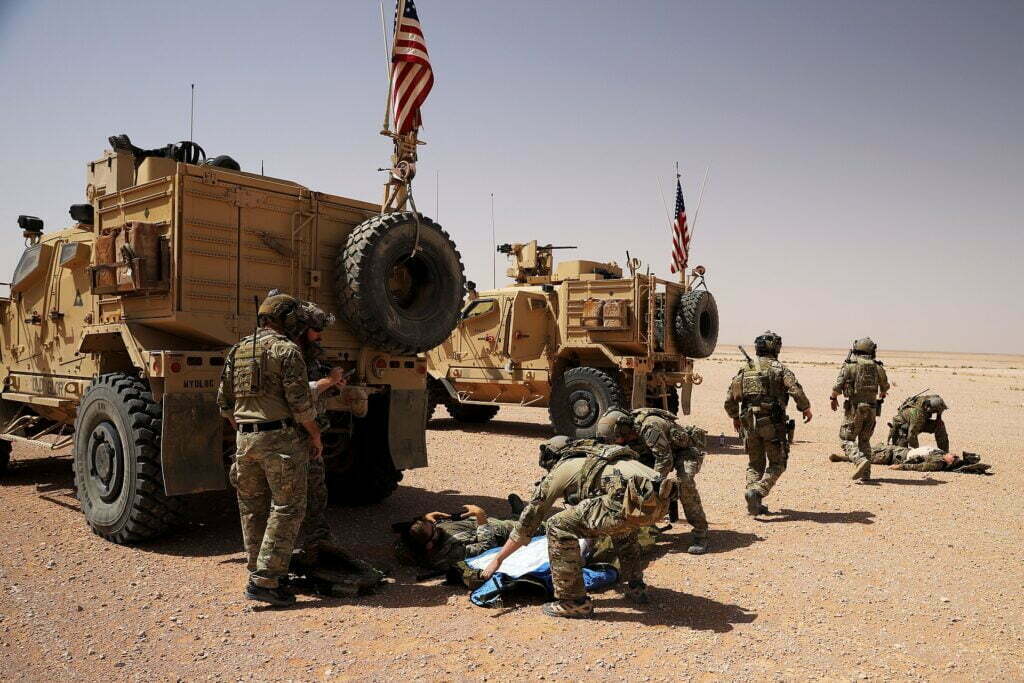Apparently, the Biden Administration is just now starting to worry about Iran’s nuclear program.
“Every option is on the table, but here’s what’s important: Iran…is moving forward aggressively with its [nuclear] program,” said Secretary of State Antony Blinken on Sunday. “The time it would take for it to produce enough fissile material for one nuclear weapon is getting shorter and shorter…The other thing that’s getting shorter is the runway we have, where, if we do get back into compliance with the agreement…we actually recapture all of the benefits of the agreement. Iran is learning enough, doing enough, so that’s starting to be a problem.”
Blinken issued a similar warning in June, claiming Tehran was “a few months” from nuclear breakout.
As I’m sure my readers are well aware, Iran’s nuclear program did not restart out of nowhere. The regime never halted its program and continued unlawful R&D despite signing the JCPOA in 2015. Tehran has been stockpiling uranium for years and in 2018 claimed to possess 950 tons of the of stuff. The Biden Administration began indirect talks with Tehran in April 2021 to determine the future of the poorly-negotiated JCPOA, but discussions stalled in June when Iranian President Ebrahim Raisi was elected.
The Biden Administration expects to resume talks in late November, though it is unlikely negotiations will produce results. As we saw last time, the regime is likely to continue its nuclear program in secret even if it does sign a deal. The JCPOA’s other signatories favor a return to the deal, though any success will depend on their willingness to threaten Tehran with sanctions if it refuses to comply.
In the meantime, US officials should prepare for the reality of a nuclear-armed Iran.
“Such a development also would reshape the balance of power in the Middle East and immediately make Iran the region’s most influential player,” notes Washington Times contributor Ben Wolfgang.
Against that possibility, Secretary Blinken confirmed the US and its allies are considering all options – including military action – if negotiations are unsuccessful and Iran continues on its current path.
Republican lawmakers hope any future agreement with Tehran will address the regime’s support of terrorism and for militias that are targeting US forces in Iraq and Syria in addition to its nuclear designs.
“Our greatest hope must always be for a peaceful, cooperative, and harmonious coexistence with Iran and all the sovereign nations of the region and the world,” said former Vice President Mike Pence, who criticized the Biden Administration’s failure to condemn the rocket bombardment against Israel earlier this year by Hamas (a terror group financed by Tehran).
Considering the Biden Administration’s “embrace with the JCPOA, their hesitation to condemn rockets being fired at our cherished ally Israel, the heartbreaking and disastrous withdrawal from Afghanistan, our adversaries may be sensing weakness in the current American administration…They may be emboldened to test our resolve. And, in fact, they’ve already begun to do so with reports of an Iranian drone attack on a US base in Syria.”
The Biden Administration responded to the drone attack (which was launched by the IRGC) by imposing economic sanctions on a handful of entities and individuals linked to the attack and promised to respond to any future attacks. Tehran condemned the action and warned that any sanctions would make nuclear talks more difficult.
Sources:
‘Starting to be a problem’: Biden scrambles to stop Iran’s ‘increasingly dangerous’ nuclear program
Biden pledges US response to Iran drone strikes, calls for renewed talks
